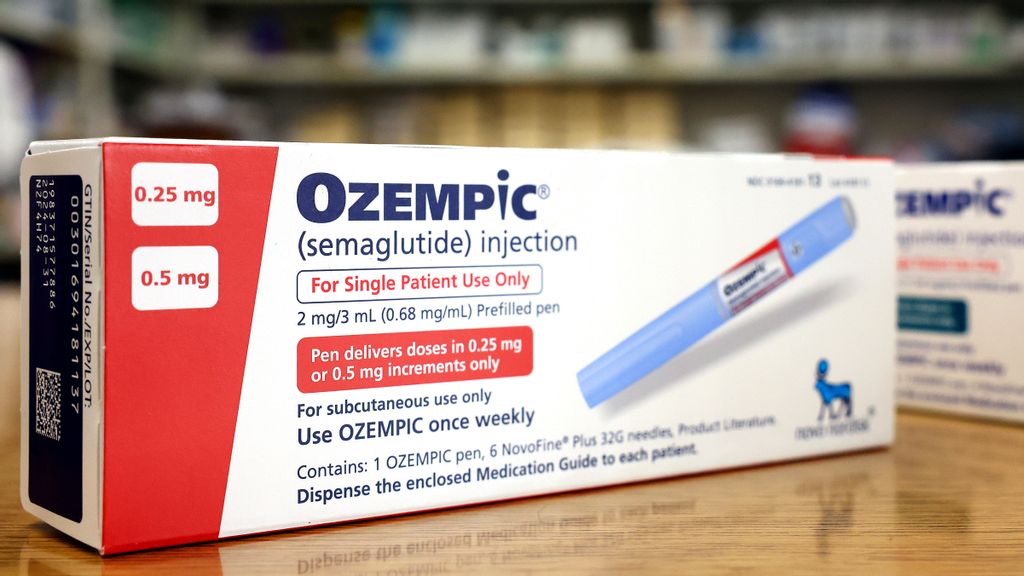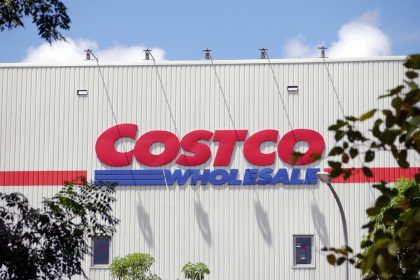
Black Americans suffer from obesity at disproportionate rates, but the popular weight-loss drug Ozempic isn’t available in many inner-city neighborhoods.
An obscure industry — compounding pharmacies — have found business serving black residents that Big Pharma ignores.
The number of people living with diabetes worldwide is on pace to more than double in the next three decades, according to a recent study published in The Lancent. This increase will bring the total of worldwide diabetic patients to a staggering 1.3 billion by 2025, making diabetes one of the top 10 leading causes of death and disability in the world.
On December 5th of 2017, a little-known drug called Ozempic hit the market to help millions of people suffering with diabetes. Ozempic was created to lower blood sugar by stimulating the pancreas to produce more insulin and has shown continual success in patients with lowering their A1-C. The introduction of medications such as Ozempic and Wegovy has changed the game for millions of people worldwide who have been struggling with diabetes. The medication was once a weekly auto injector that would allow patients to maintain their sugar levels and create a healthier way of life. One of its known side effects, however, was dramatic weight loss.
Ozempic gained notoriety in early 2022 when celebrities who do not suffer from diabetes began publicizing the drugs’ ability to assist in fast-acting weight loss. It quickly went from a lifesaving medication for diabetics to the celebrity go-to for shedding unwanted pounds. In 2021, in the US alone, prescriptions of the drug quadrupled landing the miracle drug on the worldwide shortage list creating rippling effects through many communities.
One patient thought he had found a solution to his endless battle with obesity and diabetes when he was prescribed Ozempic. The effects were almost immediate and life altering.
“I weighed more than 365 pounds and after being hospitalized for heart failure, my doctor recommended I take Ozempic,” said Valentine Paterson, a 52-year-old Uber driver in Brooklyn, New York. “Within four months of taking the drug, I lost 65 pounds, and my doctor reduced my other medications from nine to four. It changed my life. But then I could not get my prescription filled. I looked for months; it was a nightmare. All the work and progress I was making was slipping away, all because I was unable to pay out of pocket.”

 The reason Mr. Paterson could not get his prescription filled is because his local pharmacy, like many others nationwide, was no longer able to obtain the blockbuster medication. The craze of Ozempic and Wegovy created a nationwide shortage of medication by those willing to pay the exorbitant out-of-pocket costs getting first cracks at the available supply. So, while pharmacies in lower income neighborhoods could not stock their shelves, pharmacies on Manhattan’s Upper Eastside had a twelve-month supply of the miracle drug readily available to those able to pay $1,400.00 per prescription. Given this void, people began to ask who could help.
The reason Mr. Paterson could not get his prescription filled is because his local pharmacy, like many others nationwide, was no longer able to obtain the blockbuster medication. The craze of Ozempic and Wegovy created a nationwide shortage of medication by those willing to pay the exorbitant out-of-pocket costs getting first cracks at the available supply. So, while pharmacies in lower income neighborhoods could not stock their shelves, pharmacies on Manhattan’s Upper Eastside had a twelve-month supply of the miracle drug readily available to those able to pay $1,400.00 per prescription. Given this void, people began to ask who could help.
Enter the compounding pharmacy: according to the FDA, compounding pharmacies are authorized to produce exact drugs in times of a national shortage. But what exactly is a compounding pharmacy? A compounding pharmacy makes and sells prescription medicines based on the specific formula provided to it by the FDA. When a medicine makes its way to the national shortage list, compounding pharmacies are authorized to make generic versions of those medications to assist all those in need. When a medicine is not on the national shortage list, compounding pharmacies are only authorized to make alternate forms of the prescribed drug. Ozempic has been on both the worldwide and U.S. shortage list since April of 2022. However, what happens when Big Pharma doesn’t want to let compounding pharmacies earn money they feel belongs to them even during a shortage?
“Lifeline Pharmacy” is a small compounding pharmacy run by Dr. Aisha Johnson in the heart of south Los Angeles. For years, this pharmacy has served as a beacon of hope, providing personalized care and essential medications to the predominantly Black and Latino residents. Among the most critical medications Dr. Johnson compounds is semaglutide, the active ingredient in Ozempic and Wegovy.
According to the US Department of Health and Human Services, black adults are nearly twice as likely as white adults to develop type 2 diabetes. This racial disparity has been rising over the last 30 years creating a disproportionate need for these life altering medications in communities of color. Despite the FDA’s approval for compounding pharmacies to produce semaglutide, Novo Nordisk has targeted these providers in order to protect their profits and eliminate the competition.
In the Ward 8 area of Washington, D.C., a heavily populated community of Black and Latino residents, the drug remains in high demand with little to no supply. “There is definitely a monopoly on it by Big Pharma,” said Dr. Damon Ricks, pharmacy manager at Sierra International Pharmaceuticals. “Small compounding pharmacies are definitely within their rights and scope to create these drugs when the FDA declares a shortage.”
The impact of Big Pharma’s campaign is being felt in communities from Brooklyn, NY to Los Angeles, CA. Novo Nordisk’s campaign, which states that compounded versions of semagludies are unsafe and potentially life threating, has created fear and uncertainty in those using compounded versions of the popular medication. Intensifying the problem, legislative proposals influenced by pharmaceutical lobbyists threatened to impose restrictions that would make it nearly impossible for small pharmacies to continue compounding semaglutide. For communities of color, this means losing a critical source of affordable and accessible medication.
“Big Pharma should not have a hold on these drugs. There needs to be a leveling of the playing field. I think having access to these drugs all across the board is needed. If a patient needs it for diabetes, then it should be made available to them. Prioritizing weight loss over diabetic patients is an injustice to our health care system,” said Ricks.

But Big Pharma continues to push for stricter regulations, claiming the need for patient safety. However, insufficient evidence exists to back up any of the claims made by Big Pharma. Compounding pharmacies must comply with existing rigorous standards to make any medication. They follow these standards in order to serve lower economic depressed communities of color. The popularity of these drugs has made it difficult for average Americans to afford or find these medications. These are not just weight loss medications; they are tools for survival for many diabetic patients. Due to Big Pharma’s pushbacks, many patients have been forced to accept lower doses of these drugs to maintain any benefits even though most experience little to no progress with the reduced dosage. Those that truly need these lifesaving medications continue to suffer.
For communities of color, the ability of local compounding pharmacies to provide semaglutide and other essential medications is about more than access to treatment. They serve as a testament to the power of community and the relentless pursuit of a more just and equitable healthcare system.










